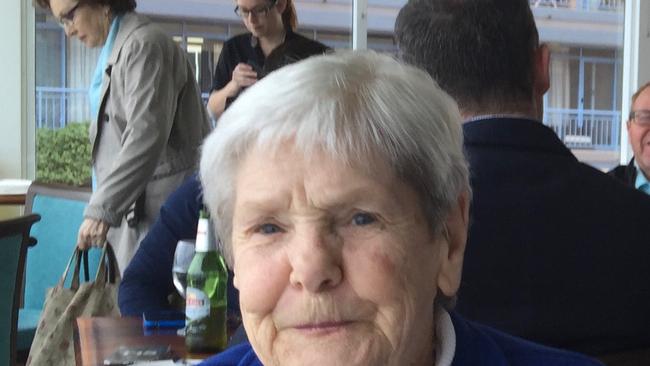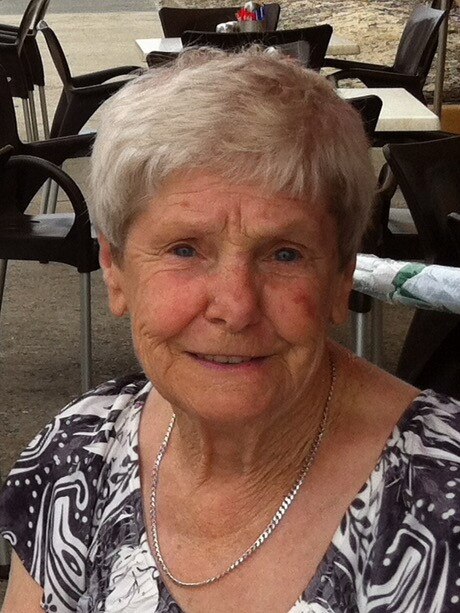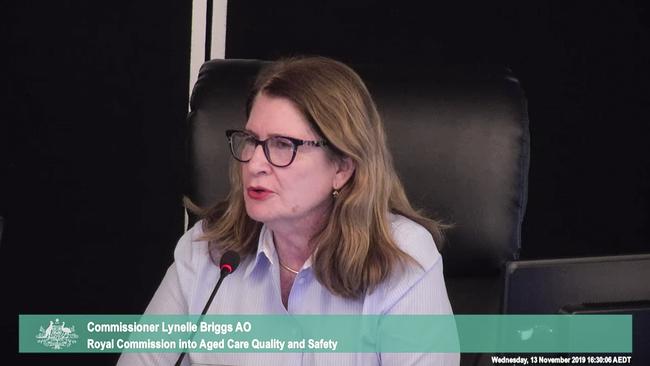Three and a half months in an aged care facility killed June Freeman because of negligent treatment
An 87-year-old woman was a vibrant lady until she moved into a aged care home at Stockton, where she died three and a half months later.

Newcastle
Don't miss out on the headlines from Newcastle. Followed categories will be added to My News.
June Freeman was a vibrant woman at 87 years young, but just three and a half months in an aged care facility at Newcastle saw her health quickly deteriorate, and ultimately what killed her.
She’s one of many who have been the focus of an Aged Care Royal Commission looking at the substandard care and neglect within the sector.
Ms Freeman moved into the Presbyterian Aged Care Wescott in Stockton on July 4, 2016.
She needed help to manage her diabetes but was otherwise independent.
Just three days in, she had a bad fall.
“She walked in there quite happy,” daughter Alana Freeman said.
“She slipped out of her chair onto her bottom, had delirium due to a urinary tract infection not being picked up and was in a lot of pain.

“I wanted her to go to the hospital but one of the registered nurses talked mum out of it.”
“It was eight days before they took her to hospital and eventually when they did, they found she had a fractured veterbrae.
“They said it was her playing up, but I kept saying on the phone she was not like this.”
After getting treatment at the Mater hospital Ms Freeman returned back to the home but the care and rehabilitation she needed wasn’t adequate.
She became bed bound, wasn’t able to walk and developed pressure sores. On her heels, ankles, elbows and her bottom.
“We didn’t realise it was that bad because no-one told us, I didn’t find out until after she died,” Alana explained.
“The one on her coccyx, it became a grade four, it was black and oozing, they did a pathology swab and it came back as golden staph.
“When I read the notes she was apparently perspiring and it turned into cellulitus and got into the blood stream and caused sepsis and killed her.”
Ms Freeman died in October. The next month Alana went to the Aged Care Complaints Commission.
It took 12 months for a report to come out.
“It was the usual tripe that yes the home didn’t do the wound care properly, didn’t do the rehab,” she said.
“They say they put X Y and Z in place and it wouldn’t happen again and that was case closed.”
Three months later the regulator extended the home’s accreditation by an extra nine months for sustained compliance with the standards.
Ms Freeman’s family did sue the organisation and earlier this year was awarded a sum of money after it was declared her treatment was negligent.
“It was a hideous ordeal,” Alana said.

She’s acknowledged the importance of the Aged Care Royal Commission, which delivered an interim report in October.
It revealed systemic failures in the sector, finding many elderly Australians were neglected and forced to live in “uncaring" conditions.
“There’s needs to be an independent authority not something run by the government,” Alana added.
“I would like a guarantee that this won’t happen again. I’d like to see these organisations prosecuted and individuals.”
She was represented by Newcastle lawyer and representative for Australian Lawyers Alliance (ALA) Catherine Henry, who on Wednesday appeared at the Aged Care Royal Commission public forum in Newcastle.
“I support the aged commission and the interim report which reported neglect and made it clear that what is required in this country is a fundamental overhaul,” Ms Henry said.
“The cases I have worked on and the complaints I have seen have shown failures, in governance and accountability and in the regulation of aged care.
“I see many cases of substandard care that result in negligent care.
“The treatment against Alana’s mother was appalling.”
The ALA supports the introduction of an independent tribunal to hear complaints of substandard care.
Also the power to issue fines and order monetary compensation to help hold the aged care sector to account.
“If you make a complaint all roads lead to the provider, or the aged care quality and safety commission or the older persons advocacy network and each option people have had negative experiences,” Ms Henry added.
“Making a complaint directly to the facility, there’s concerns about reprisals and retribution.
“It’s not a good complaints mechanism.”
The ALA says failures in governance, accountability, policy and the regulatory framework are all evident in the current residential aged care system.
“We need a new Aged Care Act – one that ensures transparency and accountability,” ms Henry said.
“The current Act does not use the terms “regulation” or “regulatory system” in relation to compliance systems.”
